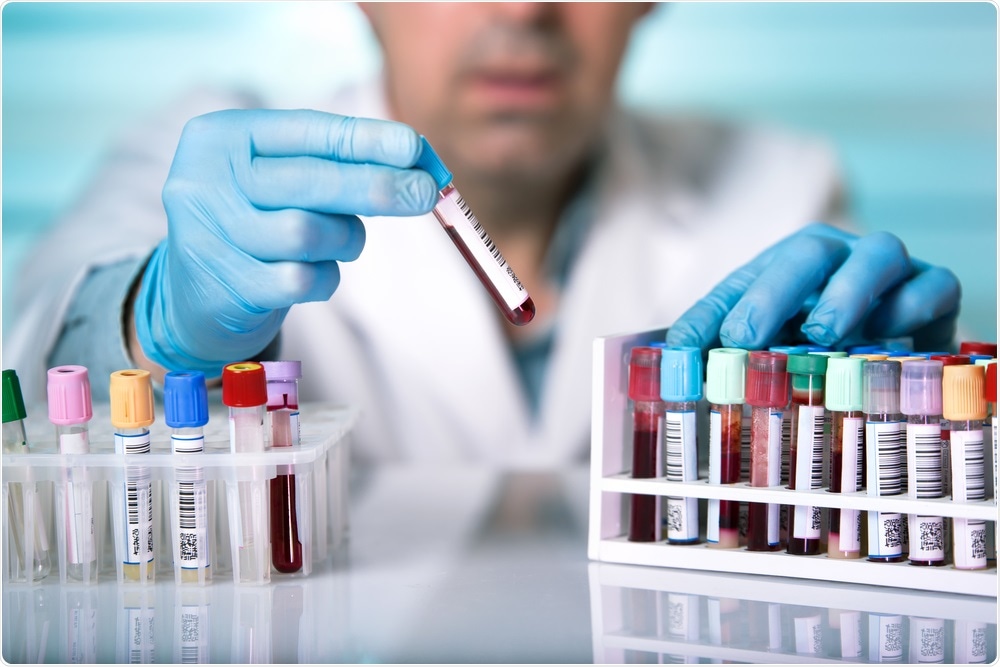Over 120,000 patients have enrolled in the Mass General Brigham Biobank, offering access to crucial information related to their health history, answering survey questions, and donating or planning to donate blood samples.

Image Credit: angellodeco/Shutterstock.com
The generous participation of the patients enables scientists to analyze how an individual’s health is impacted by their environment, genes, and lifestyle. At present, several of those patients are receiving something in return—medically actionable genomic findings. A few of these Biobank participants are learning about genetic markers of heightened risk that can be dealt with to avoid cancer and heart conditions.
Scientists from Brigham and Women’s Hospital, Massachusetts General Hospital, and Harvard Medical School discuss insights gained from their experience, unraveling actionable genetic results to study participants and translating them to clinical care. The study was reported in The American Journal of Human Genetics.
The researchers returned the outcomes to 256 participants, 76.3% of whom were not aware that they carried a variant that placed them at increased risk, although about half of them fulfilled the clinical criteria for genetic testing.
Many people have a personal or family health history already documented in their medical record indicating they should have been offered genetic testing but never had it, and there are others who had no family history or symptoms to clinically tip doctors off but still carry a dangerous genetic risk variant.”
Carrie Blout Zawatsky, MS, CGC, Study Co-Lead Author, Brigham and Women’s Hospital
Zawatsky is also the senior genetic counselor for Brigham’s Genomes2People (G2P) Research program.
“Our findings demonstrate the lifesaving benefit that genomic screening will bring to patients by identifying individuals who do not know that they are at risk,” Zawatsky.
Over 87,000 Biobank participants offered blood samples, and the researchers carried out genomic analysis on 36,417 of these samples. The researchers focused on 59 genes for conditions assigned by the American College of Medical Genetics and Genomics as medically actionable, and returned only those variants that were predicted to heighten the risk.
At first, the samples were genotyped, a method that involves testing only particular sites in the genome, and a subset was also sequenced (a wider method) for comparison. Before notifying participants, the researchers confirmed the genotyped findings and identified that 45% of these variants were inaccurate. Hence, they were not reported.
Moreover, genotyping could not identify 72% of the harmful variants detected by extensive sequencing. These results show the drawbacks of a genotyping technique. The researchers clinically confirmed all variants using an additional sample from the participant before fully announcing the results.
Many biobanks rely on genotyping technology instead of genomic sequencing. Our study shows that genotyping, while a useful tool in research, may miss important results that more comprehensive sequencing detects. In this study, confirmation of the genotype findings through sequencing was critically important as it allowed us to filter out false positives.”
Matthew Lebo, PhD, FACMG, Study Co-Senior Author and Chief Laboratory Director, Mass General Brigham Laboratory for Molecular Medicine
A total of 256 participants were alerted by the researchers that they were carrying actionable genomic results. However, 38% of those declined to receive their outcomes, mostly because they had other health care issues. Most significantly, the researchers monitored costs for returning genomic results, identifying an overall cost of $14 per participant across the whole Biobank population.
Millions of individuals around the world have been genotyped or sequenced as part of research studies, but very few of these studies have returned potentially life-saving information, in part because of confusion over the logistics and cost of doing so.”
Robert Green, MD, MPH, Study Co-Senior Author, Harvard Medical School
Green is also a professor and a physician-scientist who directs the G2P research program at the Brigham, Broad Institute, and Ariadne Labs.
“These data will help other groups planning for the return of genomic results in research and remind us that across the entire health care landscape, we are missing an opportunity to help patients avoid cancer and heart disease by not applying published recommendations for genomic testing,” added Green
Source:
Journal reference:
Zawatsky, C. L. B., et al. (2021) Returning actionable genomic results in a research biobank: Analytic validity, clinical implementation, and resource utilization. The American Journal of Human Genetics. doi.org/10.1016/j.ajhg.2021.10.005.